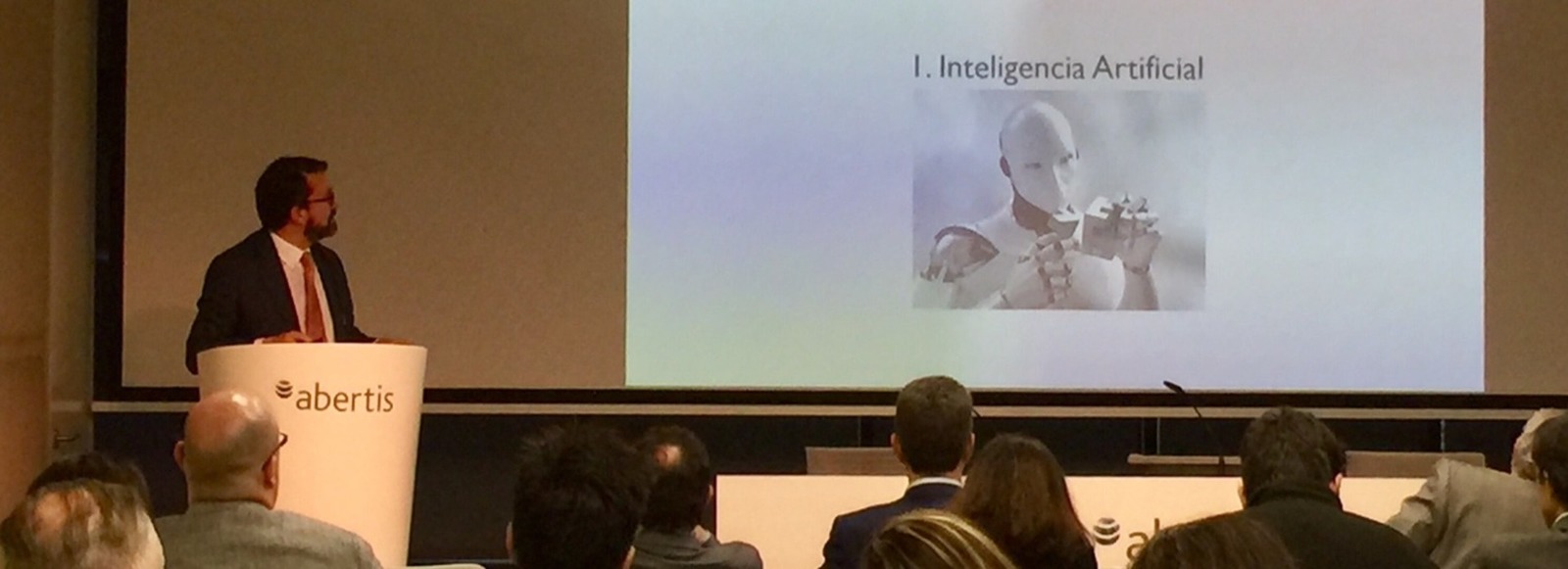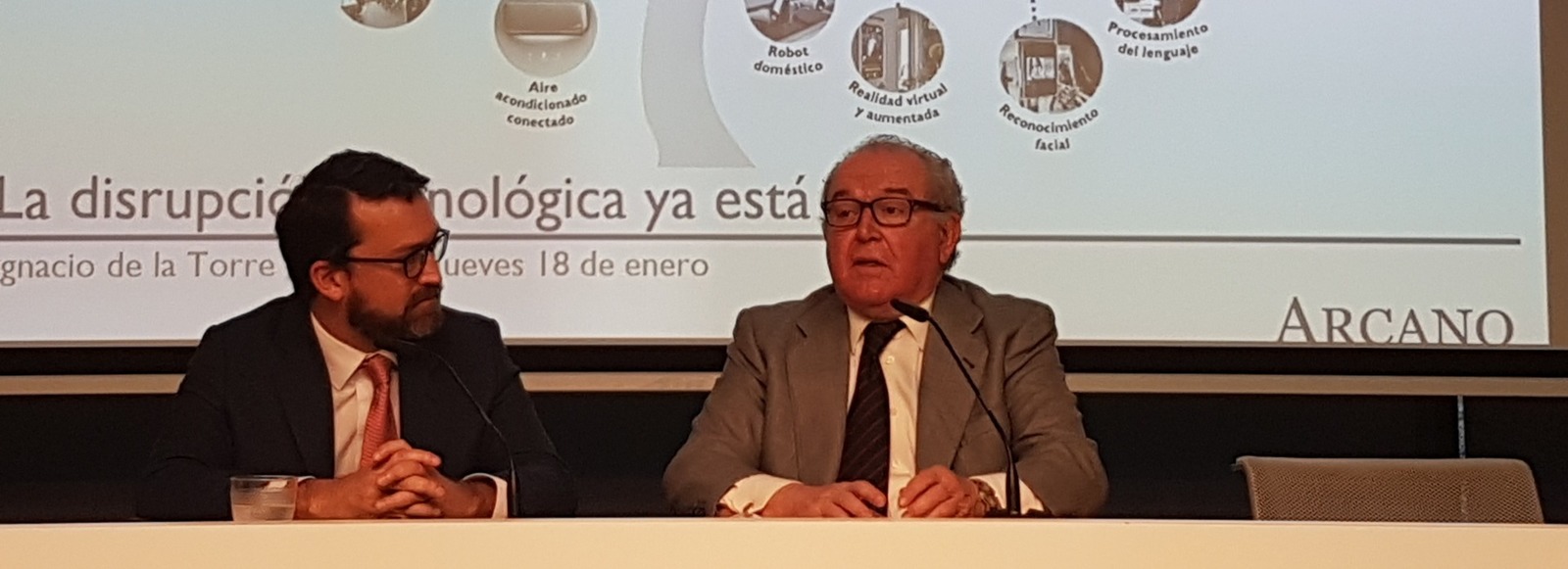23/01/2018
Although he has four degrees, Ignacio de la Torre is a medievalist. As such was defined in the talk on Technological Disruption organized by the association Digitales, with which the historian opened the 2018 season of ‘Las mañanas del Mañana’, the format-debate where different humanists analyze the changes that the Digital Transformation brings to the society of our days.
And what can an expert in medieval history bring to an audience composed mainly of engineers and technology experts? This was the first question asked by the speaker and was quickly answered, as his digression quickly captured the attention of all those attending the event. In his opinion, the best way to lose fear is to study history .
“Technology generates fear, especially of losing one’s job. This was also the case at the beginning of the 20th century when the first robot, the tractor, was introduced. The tractor generated enormous fear, but at the same time it also encouraged mass schooling, since children did not have to work in the fields and could go to school. This generated better jobs and a great change in society. Then, more than 40% of the U.S. population worked in the field, and now only 3% do,” he explained.
De la Torre presented an optimistic view of the technological revolution, although without ignoring the problems it will cause. ” The challenge is to create jobs at the same rate at which they are being destroyed”, something complicated that Keynes already considered in 1931, precisely at a conference in Madrid.
“The biggest problem is in the short and medium term, and especially for people with lower levels of education or qualifications, as creative jobs are hardly replaced by machines.” Along these lines, he pointed out that “if more than two thirds of a job can be automated, that job will disappear”.
However, he recalled the case of ATMs, which, despite generating a great deal of unrest in the sector, have not wiped out bank employees, but have reconverted their tasks. And e-commerce, he added, has created more jobs since 2007 than traditional retail has lost.
The Chief Economist of Arcano also reviewed five of the main disruptive technologies of the moment and how they may affect society and the labor market: I, II, III, IV and V.Artificial Intelligence, Internet of Things, Autonomous Vehicles, Blockchain e 3D printing. On this point, he stressed that its popularization may even affect the geopolitical model, as large companies may return to manufacturing in the first world. “This is the case,” he said, “with Adidas, which is already 3D printing sneakers in factories in Germany and the U.S. instead of making them in emerging countries.
However, he clarified that the major changes that will be imposed by these technologies are yet to come. One of the aspects to be developed will be the so-called “broad” artificial intelligence, which will allow, for example, autonomous vehicles to become a reality adopted by more than 75% of the population, as smartphones or the Internet are today.
According to the historian, all these changes will bring great benefits. We will work fewer hours as productivity increases, we will have better salaries, more fun or creative occupations and we will live many more years. “Global poverty has been reduced more in the last 50 years than in the previous 500,” he noted.
“The risk is for people with little education, and especially for those who lose their jobs around 50 and have been out of school for 35 years. That is why we have to invest in continuous training, especially when the prospects of a longer life will mean that retirement will not come until 70 or later,” he concluded.











